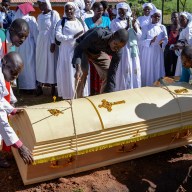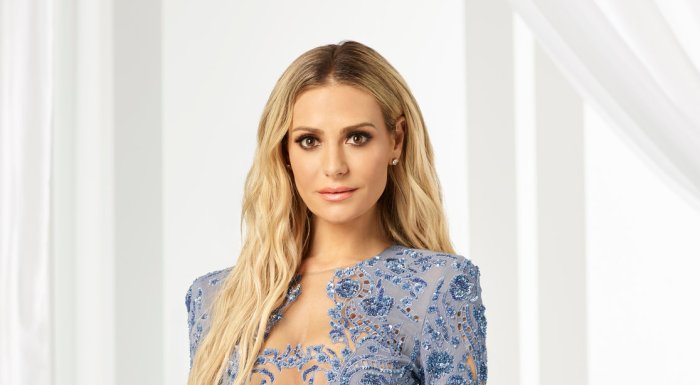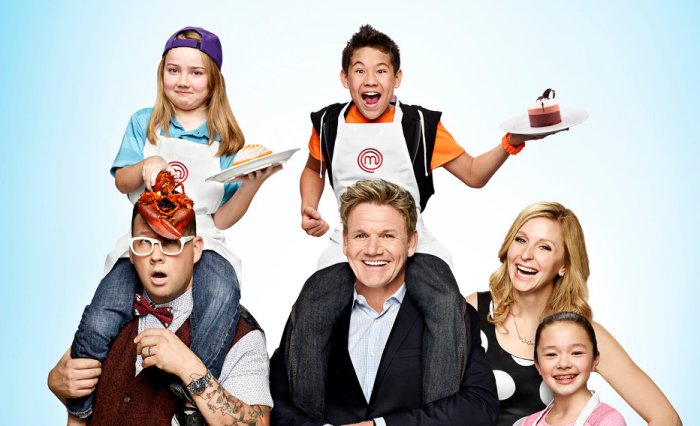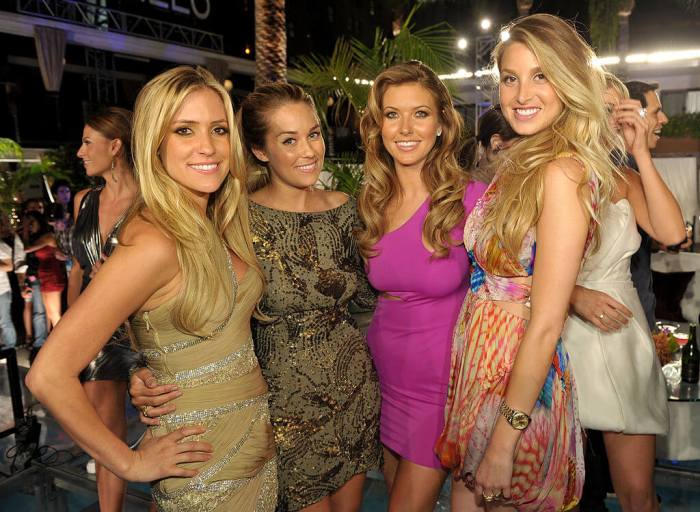If going through a breakup is hard, then going through one after your proposal was televised to millions of people might seem impossible. For Andi Dorfman, this scenario wasn’t just a bad nightmare — it was her reality. The 29-year-old first made headlines after walking out on season 18 of “The Bachelor” after a heated confrontation with Juan Pablo Galavis. She later returned to ABC and starred on season 10 of “The Bachelorette,” where she got engaged to — and subsequently broke up with — fellow Atlanta native Josh Murray. After calling off her 9-month engagement, Dorfman decided to trade in the “tears and sesame chicken” for a new life in New York City and a tell-all, “It’s Not Okay.” The bookis equal parts juicy gossip and heartfelt advice on getting over a breakup. It chronicles her journey from Galavis and Murray — respectively known as “Number One” and “Number Twenty-Six” in her book — while offering readers tough love on getting over their exes. RELATED: ‘Bachelorette’ Andi Dorfman’s latest love affair is with New York City You call “It’s Not Okay” an anti-self help book, but you also give breakup advice in it. So what category does your book fall into? Why didn’t you include the names of your exes? What are some red flags you think people should look out for in a relationship? If there are red flags in a relationship, can people move past them? You say in the book that there’s no real point to being friends with your ex. Do you still believe that? Have you gotten back into the dating scene since the book came out? RELATED:9 friendships that came out of ‘The Bachelor’ What’s different about the dating scene in New York? Who’s your right person? Do you think you’re able to reminisce about the good times and move on? Follow Chloe Tsang on Twitter @itschloet
I call it the anti-self help book because, first of all, it gives you this permission to do things that I think most self-help books steer you away from [in one chapter of the book, Dorfman writes “Sometimes you just have to get pissed and burn some s—t in order to feel better”]. But it’s also a kind of subconscious self-help — you’re reading a story, you’re laughing, you’re feeling different things while getting through a breakup and getting advice. To me, it’s self-help kind of interwoven into this dynamic and fun story.
Obviously, I’m not hiding their identity. I think we all know what number belongs to everyone. It just felt like a moment of empowerment to kind of put them all in the category and number them. It was like a feminist moment — this is my story, I’m writing it, I’m trying to get over a breakup, and the last thing I wanted to do is splash the names of all my exes all through the pages of my story. It was like, “Yeah, you know what? Let’s just number them.” It was my empowerment move.
The first one is you ask yourself, “Are you happy?” And I know you’re not going to be happy every single day, but you get to choose to be in a relationship, and you should choose a relationship that adds value to your life and makes you a better person. I think it’s very easy to tell when you’re not yourself, when you’re tense. I said it in the book — I operated on two speeds [during my relationship], silent or angry, and that’s not who I am. So when a relationship starts to change you for the worse, I think that’s when you need to take a step back and say, “What is this really giving me? Why am I in something that’s not beneficial?” It really starts with that first step: “Am I happy?”
Nobody is perfect. You’re not going to find that perfect person; you’re not perfect either. There are going to be things that bother you, there are going to be flaws and red flags in a sense. How clearly are those waving in front of your face? Are they red flags that are deal breakers? There’s an important difference between a red flag and a flaw.
I don’t think it’s true for everybody, but I’m just going to go out on a limb and say I don’t think it’s healthy. Do you really want to get a Christmas card from your ex, with his new wife and their Golden Retriever and cute kids? I personally feel like the friendship with the ex is just steering you down a bad path. Nothing good comes out of it. Go get other friends that add value to your life. Chalk it up to being a romantic relationship that didn’t work out. I put them in the “ex” category, not the “friend” category.
I always say I’m happily single. I’ve dated plenty of guys in the past two years. I date in New York, which is very different, very interesting coming from the South. But I’m still happily single.
I think in New York, people are a lot older when they start to date. In the South, everyone kind of gets married younger and starts families younger. In NYC, it’s different — everyone’s older, so you know more about yourself. It’s less of figuring it out and more of figuring the right person.
I would love to date a guy that’s just nice — the quiet, confident, nice guy who isn’t afraid to be nice. I’m not saying he’s a pushover, by any means, but somebody that isn’t afraid to be nice to me and makes me want to be nice to him back. I think that’s so important that you forget in relationships. You’re partners. You should be the nicest to your partner than anybody else in the world. It’s kind of like that “y’all against the world” mentality. I want that kind of partnership and that supportive person that’s always in my corner, and I’m always in their corner.
[For those going through a breakup,] just think of all the negative things for now. I think it helps you put everything into perspective. But in hindsight, a year and a half or whatever later, it is nice to be able to look at it and have a feeling not of animosity or bitterness, but indifference and acceptance for a past that was happy and sad and many other things.


















